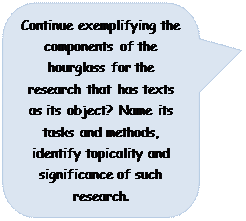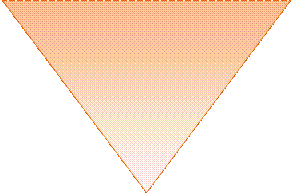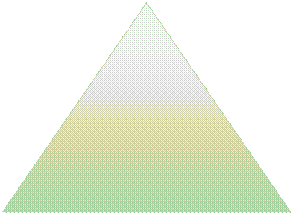
Заглавная страница Избранные статьи Случайная статья Познавательные статьи Новые добавления Обратная связь FAQ Написать работу КАТЕГОРИИ: ТОП 10 на сайте Приготовление дезинфицирующих растворов различной концентрацииТехника нижней прямой подачи мяча. Франко-прусская война (причины и последствия) Организация работы процедурного кабинета Смысловое и механическое запоминание, их место и роль в усвоении знаний Коммуникативные барьеры и пути их преодоления Обработка изделий медицинского назначения многократного применения Образцы текста публицистического стиля Четыре типа изменения баланса Задачи с ответами для Всероссийской олимпиады по праву 
Мы поможем в написании ваших работ! ЗНАЕТЕ ЛИ ВЫ?
Влияние общества на человека
Приготовление дезинфицирующих растворов различной концентрации Практические работы по географии для 6 класса Организация работы процедурного кабинета Изменения в неживой природе осенью Уборка процедурного кабинета Сольфеджио. Все правила по сольфеджио Балочные системы. Определение реакций опор и моментов защемления |
Study the lower part of the hourglass. Read the descriptions of the other four components.Содержание книги
Поиск на нашем сайте
Tasks (steps) – the outline of a step-by-step realization of the goal;
Methods (also methodology, perspective, theory – everything that predetermines the way we define and develop our research categories) – a choice of a research matrix according to which we choose categories for analysis and methods, techniques, ways of their analysis which we consider proper for our goal realization. There exist three groups of methodologies (methods), i.e. the ones within logical, philosophical, and pure professional thinking. All three can be regarded by researchers as a basic matrix:
Significance – the acceptance of a research project with its set of approaches as necessary for the science, its development and/or its further revision (or approaches and/or data verification).
Thus you see that with each new term following, you understand better what you will do in your research, how you will do it, and, what is most important, you realize whether you should carry out this particular research at all. To think scientifically does not necessarily mean that you do a research. The algorithm can be quite useful when you solve your everyday problems. Analyze the example of how a particular problem (goal) of effective driving can be approached with the help of the hourglass.
Field – driving a car (time, intellectual growth, etc.) Object – me, driving my car (BMW), in the streets of my town Subject-matter – (quite complex) the car and its service, how to operate it, the rules of driving and other details necessary for effective driving, psychological, moral and other issues.
Tasks – to find money for getting the license, to study and pass the driving test, to learn everything that matters.
Methods – (a) psychological (persuasion): to prove to parents that it is necessary for the whole family and also for my future career, (b) cognitive: to work much, (c) pragmatic: to take responsibility on oneself, etc. Topicality – if I learn how to drive and get the driving license, my parents will buy me a car. Significance – new traits of character plus flexibility and mobility. So, If we successfully follow all steps coming to the last – Topicality and Significance – and find no answers to these two points, how should we treat the research problem (goal) and is it a problem at all, do we need to reach this goal then? In case the problem does not prove itself as such, it may be wise to turn over the hourglass and to start anew. The first question here will be then: what is really topical and significant for me now? _ 1 6 Analyze the disciplines you study this year or practical activities you are doing or planning to do this year (e.g., learn a foreign language, participate in a debate club or any other social activity, do morning exercises, etc.). Fill the hourglass with real ideas. Let us sum up. Put on one after another WHITE and BLACK hats and look back at our work in this Part. In five minutes put on the RED hat and express your opinion in one word. Put on YELLOW and GREEN hats in your further work. As for the BLUE one, put it on and be in it, because you have just joined a university community but your real life and interaction in it is still in future. We wish you all luck and success! J
READING FOR INFORMATION ON STUDENTS' EXPECTATIONS AND SCIENTIFIC WAY OF THINKING
& Text 1
1 Think of your own expectations of University life. Fill in the table to compare them with the reality that you face.
2Read a Chinese girl’s diary note about expectations of University life and the reality. Discuss if her expectations and reality differ a lot from yours. My Expectation of Life at University & the Reality Life at university, to some extent, is a preparation for our future challenge; meanwhile, the campus life in which we become mature may profoundly affect us. Yet sometimes the campus life is out of my expectation and gets me twisted. Here are some similarities and differences between it and my expectation. Study. Saying good-bye to the high school life, we start a campus life without endless examination papers and piles of homework, which is what I thought before, and the reality is so. However, study is still our most important task in reality. For many college students, the studies may be no lighter than before. Under the stress of getting a good job and the serious competition of society, students are engaged in achieving all kinds of testimonials. Some of them even minor in other subjects besides their majors. In terms of me, I will neither follow the trend blindly with too much material gain nor waste my learning time. Learning is one thing that runs though all one’s life, and the circumstance of school is quite in favor of study. So how could I not absorb more and more knowledge at my prime time for learning? Social. Leaving the high school, we face to a whole new and colorful campus life, so I do. On my mind, there should be countless parties and all kinds of fraternities and sororities as the movies often portray to us. Contrary to my expectation, many interest groups and ASB (associated student body) appeal to us. We can meet different people and develop our leadership there. As Aristotle said man is a social animal, we do need some social ability but there is no point attending too many soirees like Hollywood star party. In the binge night I prefer to bury myself into books or join a discussion about the world affairs rather than be immersed in drink and dusty parties. My expectations of life at university should be more different from the reality. I expected my college was in a modern city instead of in a little town, Zhouzhuang; I conceived I sat in the shade with a coffee but now I am rushing to the library with a Shangdong pan-cake; I once thought my daily exercise was yoga but it now is just walking from study hall to dorm. Sometimes I feel my campus life is too peaceful, and we are confined to our own little circle so that do not know what the outside world is happening. As college students, we should not be out of joint of society, we should play a vanguard role of society progress. Maybe our university education should do some alternation and universities, no matter famous or not, are the places cultivating the students who have the sense of mission of society. The serenity of my university is good to our study but I know we should not take it for our sanatorium. In the picturesque town, I equip myself with knowledge and live myself to the most, waiting fortune knocks my door one day. (Retrieved from http://hi.baidu.com/%CE%E2%EA%C0%E4%EC /blog/item/3aed0e094f91bea92eddd4d4.html) 3Interpret the following statements from the diary. How do you understand them? Do you share the girl's opinions expressed in the statements? · Life at university, to some extent, is a preparation for our future challenge; meanwhile, the campus life in which we become mature may profoundly affect us. · Under the stress of getting a good job and the serious competition of society, students are engaged in achieving all kinds of testimonials. · On my mind, there should be countless parties and all kinds of fraternities and sororities as the movies often portray to us. · Learning is one thing that runs though all one’s life, and the circumstance of school is quite in favor of study. · Maybe our university education should do some alternation,and universities, no matter famous or not, are the places cultivating the students who have the sense of mission of society. · The serenity of my university is good to our study but I know we should not take it for our sanatorium. & Text 2 1 You are already acquainted with the idea of‘ scientific thinking ’(pp. 105-108). However, you might have asked 'What goes next, after considerations?' Try to restore the sequence of actions that a scientist, or just a critical thinker, follows while his/her research work. Put the proposed actions in a reasonable order using common sense and your intuition. (a) statement of the problem (b) collecting preliminary information on the problem (c) generating a theory (d) suggesting a preliminary solution of the problem (e) identification of a significant problem (f) testing the hypothesis
2 The following text gives information on the scientific method in practice. Read it and check if you are right with the sequence of steps that a scientist follows.
|
||||||||||||||||||||||||||||||
|
Последнее изменение этой страницы: 2016-08-01; просмотров: 70; Нарушение авторского права страницы; Мы поможем в написании вашей работы! infopedia.su Все материалы представленные на сайте исключительно с целью ознакомления читателями и не преследуют коммерческих целей или нарушение авторских прав. Обратная связь - 18.118.144.239 (0.006 с.) |

 Topicality – the acceptance of a research project with its set of approaches (i.e., field-object-subject matter-goal-tasks-methods) as necessary for the society in the framework of ‘here and now’;
Topicality – the acceptance of a research project with its set of approaches (i.e., field-object-subject matter-goal-tasks-methods) as necessary for the society in the framework of ‘here and now’;
 Goal – effective driving, getting from one place to the other
Goal – effective driving, getting from one place to the other


